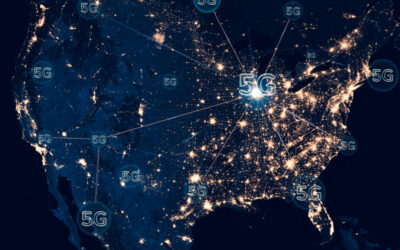The second richest man in the world – Larry Ellison – opposes Tim Cook’s vision. Orwell Again.
“Would you feel safer in a world surrounded by cameras if you had nothing to hide?
This decade could be marked by a battle between privacy and security. Where are the limits? To what extent do we lose benefits by protecting our privacy? Or, on the other hand, are we giving away too much of our data? For Apple, privacy is a pillar in all its devices. From the encryption of the operating system itself to most of the functionalities of Apple Smart.
This contrasts with other companies like Facebook, which faced major controversies following the Cambridge Analytica scandal. It was from that point that companies began to take user privacy much more seriously. Although today we have yet another completely opposing view to Tim Cook’s. This comes from Larry Ellison (co-founder of Oracle), who has made his stance clear: privacy is overrated.
Video surveillance as a solution to many of our problems
While Tim Cook and Apple advocate for protecting users’ data, Larry Ellison paints a future where mass video surveillance and artificial intelligence will control every movement of citizens. And despite how terrifying it may sound, for Larry Ellison, it would be beneficial for all of humanity.
During a recent financial meeting, Oracle’s co-founder presented his vision of a world where autonomous drones and millions of AI-powered cameras will maintain order and “force” citizens to behave correctly. While many are alarmed by this dystopia, the magnate sees it as an ideal technological solution.
According to Larry Ellison, what today seems like a watched society will soon be the norm. During a Q&A session, Ellison explained how he believes AI will take control of public safety. In this scenario, cameras placed on vehicles, streets, and even drones will analyze every citizen’s action. The idea is simple: if someone knows they are being watched at all times, they won’t break the rules.
The comparison with George Orwell’s 1984 is inevitable. In the novel, citizens are constantly observed by the government. And while Orwell’s work warned about the dangers of such extreme control, Larry Ellison presents it as something positive, capable of preventing crimes and improving global security. In fact, he claims that this technology is already in use in countries like China, where automated camera systems collect data from every citizen.
And not only China—South Korea also applies video surveillance. Japan has a large number of cameras as well. In short, Asian countries have a different view on the concept of privacy. Perhaps they’ve accepted that they can give up a “bit of freedom” in exchange for walking more safely on the streets. Having zero fear of theft, assault, etc. And those of us who have been to these countries know we can feel completely safe. Is it culture? Is it video surveillance? I would personally bet on a mix of both.
For Tim Cook, security and privacy can be united
In contrast to this vision, we have Tim Cook, who has maintained a firm stance on the importance of privacy. For Apple’s CEO, privacy is a fundamental right, and any technological advancement must respect it. This is evident in the development of Apple Intelligence, end-to-end encryption in iMessage, or the creation of the App Tracking Transparency system, which forces apps to ask for permission before tracking data for advertising—something that has affected many other companies.
Tim Cook argues that there is no need to choose between privacy and technology. True innovation must find ways to protect the user, rather than surveil or exploit them. On the other hand, Ellison’s stance is not without conflicts of interest. As the executive chairman of Oracle, his company is directly involved in creating massive data infrastructures and AI systems that would benefit from the adoption of large-scale surveillance technologies. This raises the question of whether his advocacy for mass video surveillance is driven solely by security concerns or “…also hides an economic interest in boosting the growth of his business.”






0 Comments